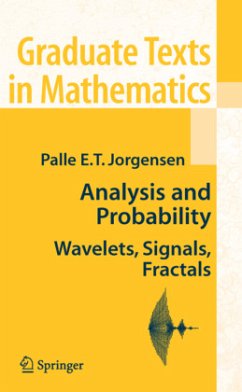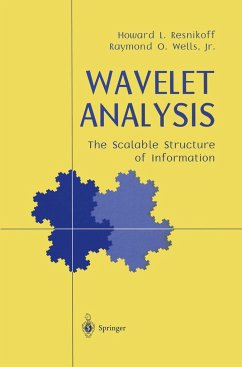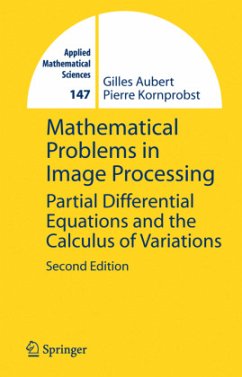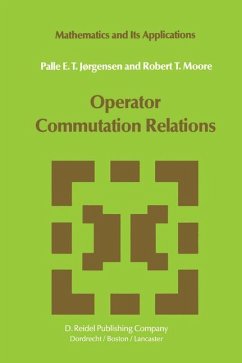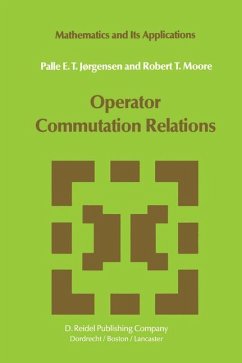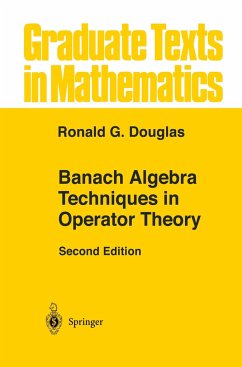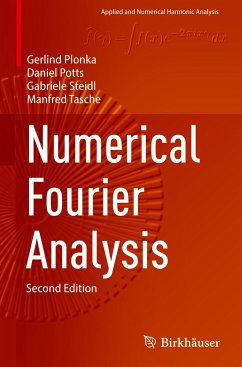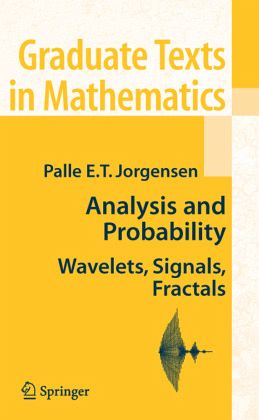
Analysis and Probability
Wavelets, Signals, Fractals
Zeichnungen: Treadway, B
Versandkostenfrei!
Versandfertig in 1-2 Wochen
38,99 €
inkl. MwSt.
Weitere Ausgaben:

PAYBACK Punkte
19 °P sammeln!
This text, combining analysis and tools from mathematical probability, focuses on a systematic and novel exposition of a recent trend in pure and applied mathematics. The emphasis is on the unity of basis constructions and their expansions (bases which are computationally efficient), and on their use in several areas: from wavelets to fractals. The aim of this book is to show how to use processes from probability, random walks on branches, and their path-space measures in the study of convergence questions from harmonic analysis, with particular emphasis on the infinite products that arise in the analysis of wavelets. The book brings together tools from engineering (especially signal/image processing) and mathematics (harmonic analysis and operator theory
If people do not believe that mathematics is simple, it is only because they do not realize how complicated life is. -John von Neumann While this is a course in analysis, our approach departs from the beaten path in some ways. Firstly, we emphasize a variety of connections to themes from neighboring fields, such as wavelets, fractals and signals; topics typically not included in a gradu ate analysis course. This in turn entails excursions into domains with a probabilistic flavor. Yet the diverse parts of the book follow a common underlying thread, and to gether they constitute a good blend; each part in the mix naturally complements the other. In fact, there are now good reasons for taking a wider view of analysis, for ex ample the fact that several applied trends have come to interact in new and exciting ways with traditional mathematical analysis-as it was taught in graduate classes for generations. One consequence of these impulses from "outside" is that conventional boundaries between core disciplines in mathematics have become more blurred. Fortunately this branching out does not mean that students will need to start out with any different or additional prerequisites. In fact, the ideas involved in this book are intuitive, natural, many of them visual, and geometric. The required background is quite minimal and it does not go beyond what is typically required in most graduate programs.





